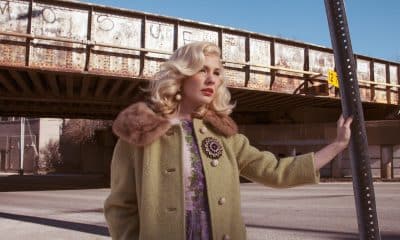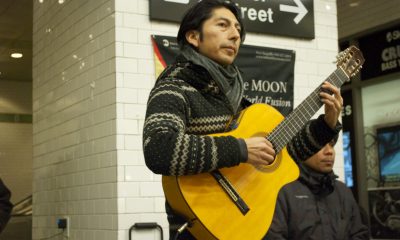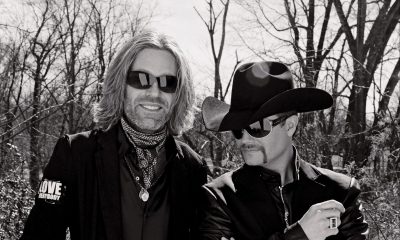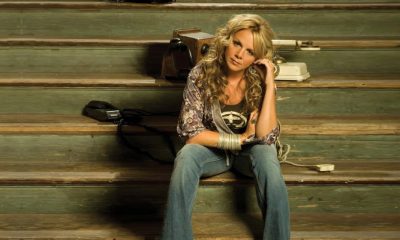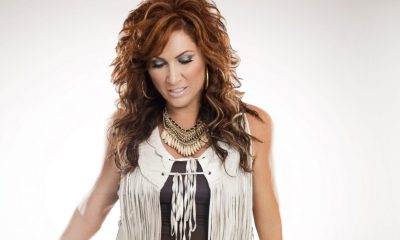Interviews
Power to the Peaceful: An Exclusive One-on-One with Michael Franti
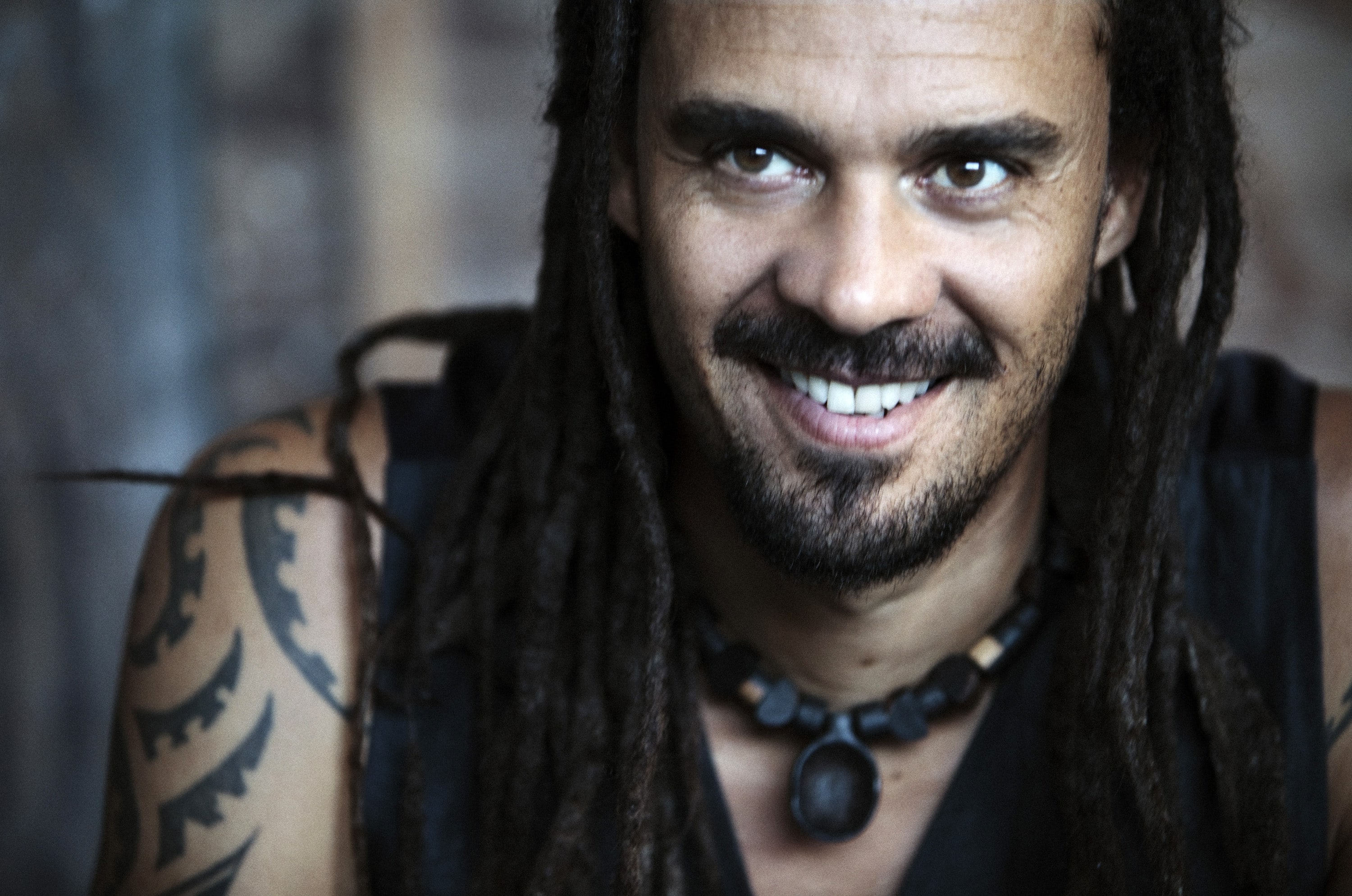
Michael Franti has been making music for over 25 years, blending his unique style of hip/hop with funk, reggae, soul, folk, world beat, rock and politics. To some, he has been dubbed a rabble rouser, but to his loyal followers he is a voice of reason, promoting social justice throughout the world, echoing themes that are as as socially relevant today as they were when he began in 1986—themes of peace, environmentalism and acceptance of our fellow humans. Franti stanchly opposes what he describes as “man’s inhumanity to man in all its guises,” from the death penalty to war to the homeless who shuffle down the streets in his own San Francisco.
Franti’s music, his words and his films have become the embedded in the rhetoric of today’s anti-war movements. Lyrics from his 2003 song “Bomb the World” can be found on t-shirts, buttons mugs and protest sings across the globe. “We can bomb the world to pieces,” he wrote. “But we can’t bomb it into peace.”
Indeed, Franti’s words carry a raw, pure passion—and a gravity that has come to be expected from him. It’s that passion that set the tone for our conversation, when I recently caught up with him on the road before the Mountain Jam in Hunter, New York. We talked about Franti’s music, his passion for social justice, and his views on the state of world affairs.
HEATHER JACKS: You’ve been extremely outspoken against the war in Iraq, which has now extended into Afghanistan. You have also been an ardent supporter of President Obama. The fact is, the war has escalated; our soldiers have not come home. So, I have to ask: How do you feel about the President now?
MICHAEL FRANTI: Well first of all, he entered in the worst situation possible, a funky economy and inheriting not one, but two wars. And I’m somebody who has been to Iraq and played in the streets of Baghdad and I’ve seen what life is like for people in Iraq, for Iraqi civilians as well as soldiers. I’ve played at Walter Reed Hospital several times, seen injured soldiers there and played for them. And apart from Barack Obama, left or right, Republican or Democrat, I believe that we should be spending our resources on helping people be better, be more healthy, be more productive, have economies that work and spend less money on blowing people up; but, that’s just where my political leanings are. I’m always going to fight for that and I’m continuing to urge Obama to go in that direction.
My song “It’s Time To Go Home” came from my experience of being in Iraq, and from playing for soldiers at the Walter Reed Hospital and seeing these guys who are just ready to come home. It seems like now, with all the other things that are happening in the news—healthcare, climate change, the oil spill—our brothers and sisters who are over there in Iraq and Afghanistan are on page 16 and kind of forgotten. So, I wrote that song as a reminder, that they’re still over there and it’s time to go home.
HJ: I’m gonna be real here. I love your work, but when you did “The Obama Song,” I wondered if you had sold out.
FRANTI: Well, I feel that most importantly today, we want everyone to feel like they can contribute and be appreciated for their contributions and that’s the spirit that Barrack really brought to this country. And he’s already done a fantastic job of setting a tone and his tone is, “I’m gonna approach this from calmness. I’m gonna approach this with intelligent passion.
And he’s not gonna do everything I think is right, but he’s gonna do what is best for getting our country back on track and getting the world in a healthier space. And if he’s not doing what we want, then get mad, speak out, stand up, and raise your voice. When we all sit back and go, ‘OK whatever the government decides is OK’, that’s when we have problems.
Standing up and speaking out is something Michael has been doing his entire career. As a musician, a filmmaker and activist. I Know I’m Not Alone, his award winning film, “Came out of [his] frustration with watching the nightly news and hearing generals, politicians, and pundits explaining the political and economic cost of the war in the Middle East, without ever mentioning the human cost. I wanted to hear about the war by the people affected by it most: doctors, nurses, poets, artists, soldiers, and my personal favorite, musicians. The film itself was not meant to be a political movie, it was a film about people, and how they cope in a war-ridden country.
Power to the Peaceful
Franti has been largely ignored by the mainstream media. However, through extensive touring, alternative news outlets and an ever growing, extremely loyal grassroots fan base, he continues to gain notoriety.
In the early 80s, he—along with the rest of the world—followed the story of American activist, journalist and convicted murderer, Mumia Abu-Jamal. Jamal, a former Black Panther, was sentenced to death for the 1981 murder of Philadelphia police officer Daniel Faulkner. His incarceration, trial and ultimate sentence continue to be mired in controversy and have attracted worldwide recognition from organizations such as Amnesty International and The Human Rights Watch. As a way to support Jamal and oppose the death penalty, Franti founded Power to the Peaceful; an organization dedicated to, not only peace, but human rights. Power to the Peaceful is a lifestyle choice, which is celebrated at an annual free festival.
The movement embraces yoga, vegetarianism, humor, social justice and the practice of non-violence on a musical backdrop that has included such luminaries as Alanis Morissette, Ziggy Marley, Indigo Girls, The String Cheese Incident, Anti Flag and Angela Davis. It was, as MiFranti says, inspired by, “The one question that kept coming up for me. And that is, can I be the peace that I want to see in the world?”
This year the Power to the Peacful festival was attended by over 50,000 people.
Franti has become a figure of importance on the musical scene in general, and the world canvas at large as a spokesperson for environmental issues.
The BP oil spill
HJ: You recently played at The Gulf Shores Festival in Alabama. Tell me about that.
FRANTI: Yeah, let’s talk about the oil spill. Because it’s something I’ve been keeping track of every day, since it first started. We were playing right at the beach with Zac Brown Band, Matis and just some great players, and from the stage you could look out over the ocean and it was so weird to have this feeling that there was this giant sea monster of oil that was brimming out there and nobody knows when it’s going to hit shore.
If you live anywhere near the Gulf Coast, I think it’s great to go there and see what’s happening with your own eyes. We need to keep as well informed as possible, so that as this thing develops, we can vote for people who are going to change energy policy. We need to be independent of foreign oil.
HJ: So, in the theme of keeping well informed; how do you do that? What blogs or news are you reading?
FRANTI: I don’t really read or follow one blog. My main blog is Facebook. I’ll check out some other blogs, CNN, BBC, Huffington Post, Yahoo News, and mostly check out the comments below. But I do follow Facebook. I get on there every day and correspond with people. I personally do a five or six minute media clip, daily on Facebook.
HJ: Regarding the oil spill, what was your take on the communities on the Gulf Shore?
FRANTI: I went and had lunch at a couple of restaurants and talked to people who have businesses there and the businesses are just getting hammered. Even though it hadn’t affected the beaches yet, the communities were suffering.
This spill has so many different layers to it. There’s the economic component, there’s the environmental component that we’re now seeing in Louisiana as the oil washes up on the shore and it’s going to be decades because there’s these globules that are sinking to the bottom and they’re eventually going to wash up again in years to come. Then there’s the whole thing of our energy and where we derive our energy from, which then has to do with the wars that we’re waging and the amounts of money that we’re spending, which we should be spending on things like better energy, or education, or healthcare, or national parks or roads or anything.
HJ: What do you think Michael? Is the world going to get better?
FRANTI: Yeah, I think so. I see a lot of changes in our country. Everywhere I go, I see people who are looking to create a greener life for their family, for their school, for their community. Like recycling and organic produce. I see big chains like Wal-Mart incorporating green policies into their stores and I think with this oil spill, it’s going to make people feel the imminence of this change that needs to occur. I hope that’s the positive that comes out of it. Right now, there’s people who are really struggling down there and need our help.
HJ: So, I know that in keeping with your environmental mission, you don’t use water bottles on your tour or in your personal life. You’re a vegan, and your bus runs on biodiesel. You are what I would call a true granola head.
FRANTI: Granola Head? I like that.
HJ: But what about the shoes Michael? Inquiring minds want to know, ‘why don’t this boy wear no shoes?’
FRANTI: [Laughing] Yeah, I haven’t worn shoes since, well, I guess for about ten years or so now. I went down to New Zealand and I was staying with some traditional Maoris in the jungle and they don’t wear shoes in the jungle, so I took off my shoes and I couldn’t even walk three steps so I thought I’m gonna try this, like a fast, for three days in San Francisco. And now it’s 10 years.
Not wearing shoes has been a great learning experience about staying in touch with the planet, learning where to step, where not to step and walking gently upon the earth.
Shake it, baby
Franti’s music is politically charged, but he tells me that the message is simpler. “To appreciate yourself,” he says, “and to learn to embrace others from all walks of life, all parts of the world, all religions, all races, shapes colors and sizes. We just want to spread some sunshine on the road, because it’s OK for us to have fun and appreciate the beauty in each other. The first line to our new single is the most important to me: You’re perfect just the way you are, because the way you look doesn’t matter/Just shake it, shake it, shake it baby.”
- Lists13 years ago
Top 10 Country Music Albums of 2010
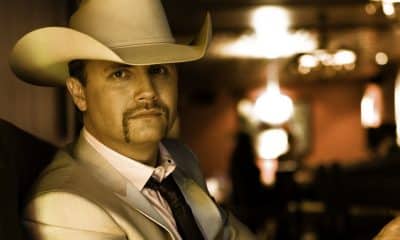
 Interviews5 years ago
Interviews5 years agoJohn Rich – The Interview

 Song Reviews16 years ago
Song Reviews16 years agoTaylor Swift – “Love Story”

 Interviews5 years ago
Interviews5 years agoHoneyhoney on Hiatus: Revisit our 2008 Interview with Suzanne Santo
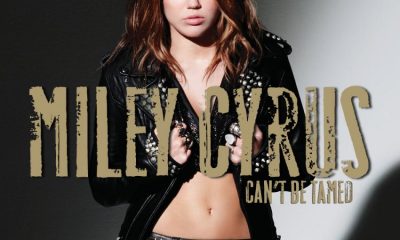
 Album Reviews14 years ago
Album Reviews14 years agoAlbum Review: Miley Cyrus – Can’t Be Tamed
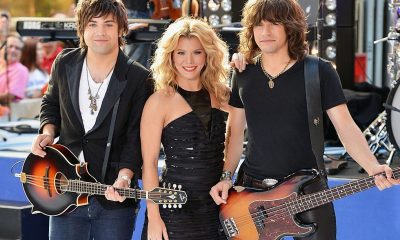
 Song Reviews6 years ago
Song Reviews6 years agoThe Band Perry – “Hip To My Heart”

 Columns5 years ago
Columns5 years agoThe Link Between Folk Music’s Past and Present
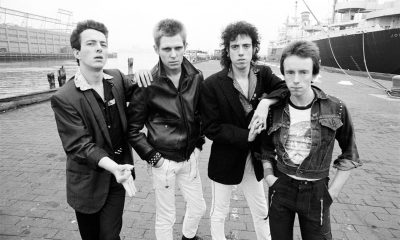
 Columns5 years ago
Columns5 years agoIs Marketing Killing Rock and Roll?


